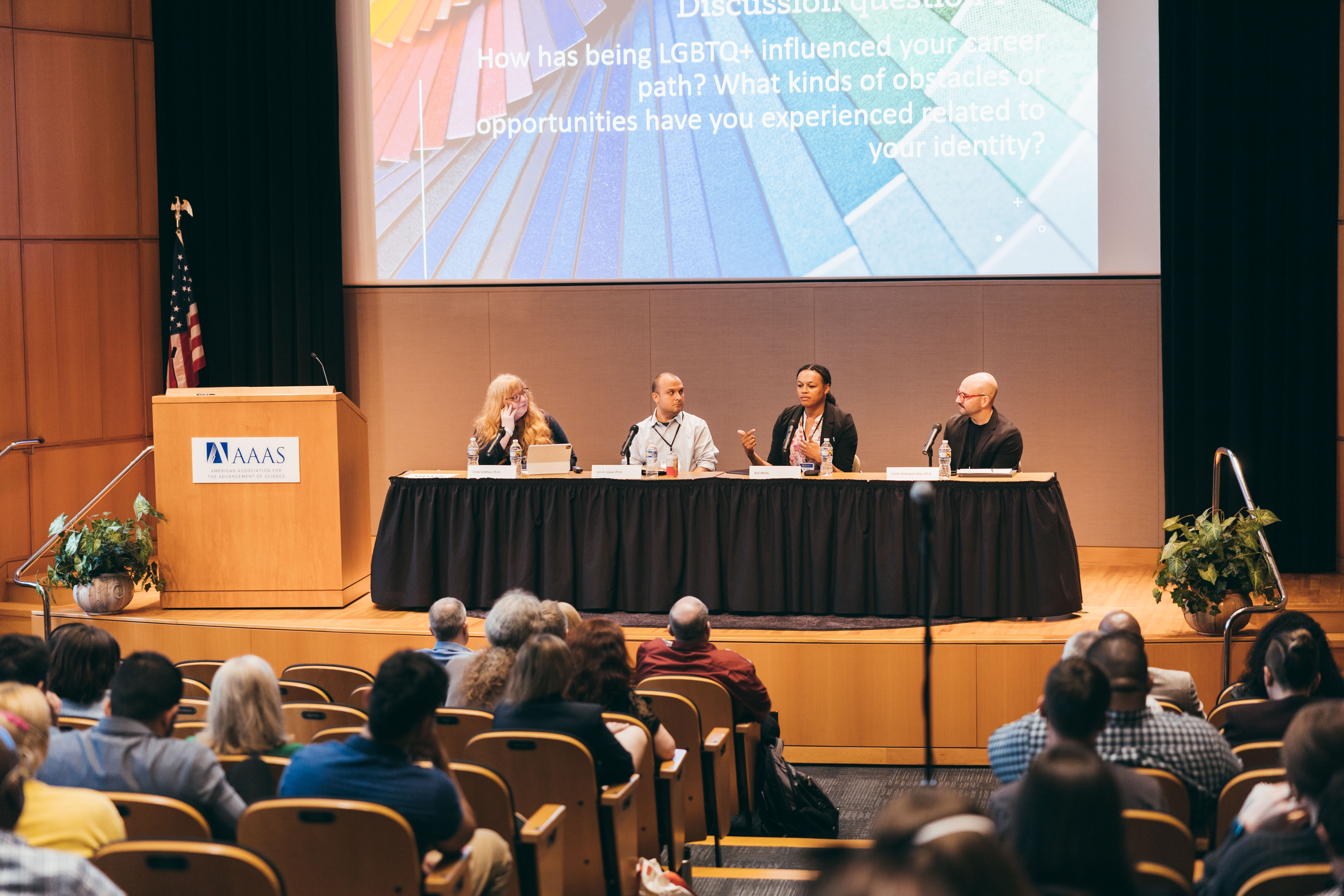ISGMH Hosts LGBTQ+ People in STEM Fields Symposium
This story was originally published by Feinberg School of Medicine.

The Institute for Sexual and Gender Minority Health and Wellbeing (ISGMH) convened scientists, policymakers, community organizations and LGBTQ+ community members to discuss the inclusion and advancement of LGBTQ+ individuals in STEM fields for its annual State of Sexual and Gender Minority Health Symposium, held in Washington, D.C. on May 30.
Representatives from the National Institutes of Health, the White House Office of Science and Technology Policy, the National Science Foundation, as well as investigators from ISGMH and other leading academic research institutions discussed recent findings on how LGBTQ+ scientists are faring in the workforce, how mentorship can positively impact LGBTQ+ students and young professionals, and what part federal policy can play in inclusion of LGBTQ+ individuals in STEM fields and research.
“This symposium is the first to bring together federal funding agencies, the White House office that advises the President on science and technology, and the researchers shaping our understanding of how LGBTQ+ people navigate education and employment in STEM fields. Our goals are to educate attendees about the current landscape impacting LGBTQ people in STEM, to share the personal and professional experiences, and to offer real and actionable ideas for addressing disparities,” said Brian Mustanski, PhD, director of ISGMH, and professor of Medical Social Sciences and of Psychiatry and Behavioral Sciences.
Cindy Veldhuis, PhD, assistant professor of Medical Social Sciences and of Obstetrics and Gynecology, shared personal impacts of marginalization in STEM disciplines during the symposium. Courtesy of Brian Mustanski, PhD.
Presentations and discussion panels covered a range of topics, including challenges and disparities faced by LGBTQ+ high school students, college students, and employees in or seeking to join the STEM workforce, as well as LGBTQ+ workforce initiatives presenting opportunities and challenges related to federal policy for LGBTQ+ researchers in STEM fields.
Scholars at different stages of their careers also discussed specific challenges faced by LGBTQ+ individuals, personal experiences of barriers to career advancement, and the role of mentorship in promoting inclusivity and diversity in STEM workplaces.
Following the symposium, ISGMH hosted a two-day think tank with key stakeholders in government, academia and education to develop policy recommendations for improving education, research and federal funding opportunities for LGBTQ+ scientists.
“Our community faces health disparities across numerous domains and we need LGBTQ scientists that have lived experiences and connections with our community to understand how to eliminate these health inequities. We also know that diverse scientific teams produce science that is more novel and is higher impact, and therefore it is in our nation’s interest to assure that we have a diverse scientific workforce that includes LGBTQ+ scientists,” Mustanski said.
The “Inclusion and Advancement of LGBTQ+ People in STEM Fields” symposium was held in collaboration with the American Association for the Advancement of Science and the American Educational Research Association and supported by the Calamus Foundation, Ernst & Young, and Northwestern University Feinberg School of Medicine.